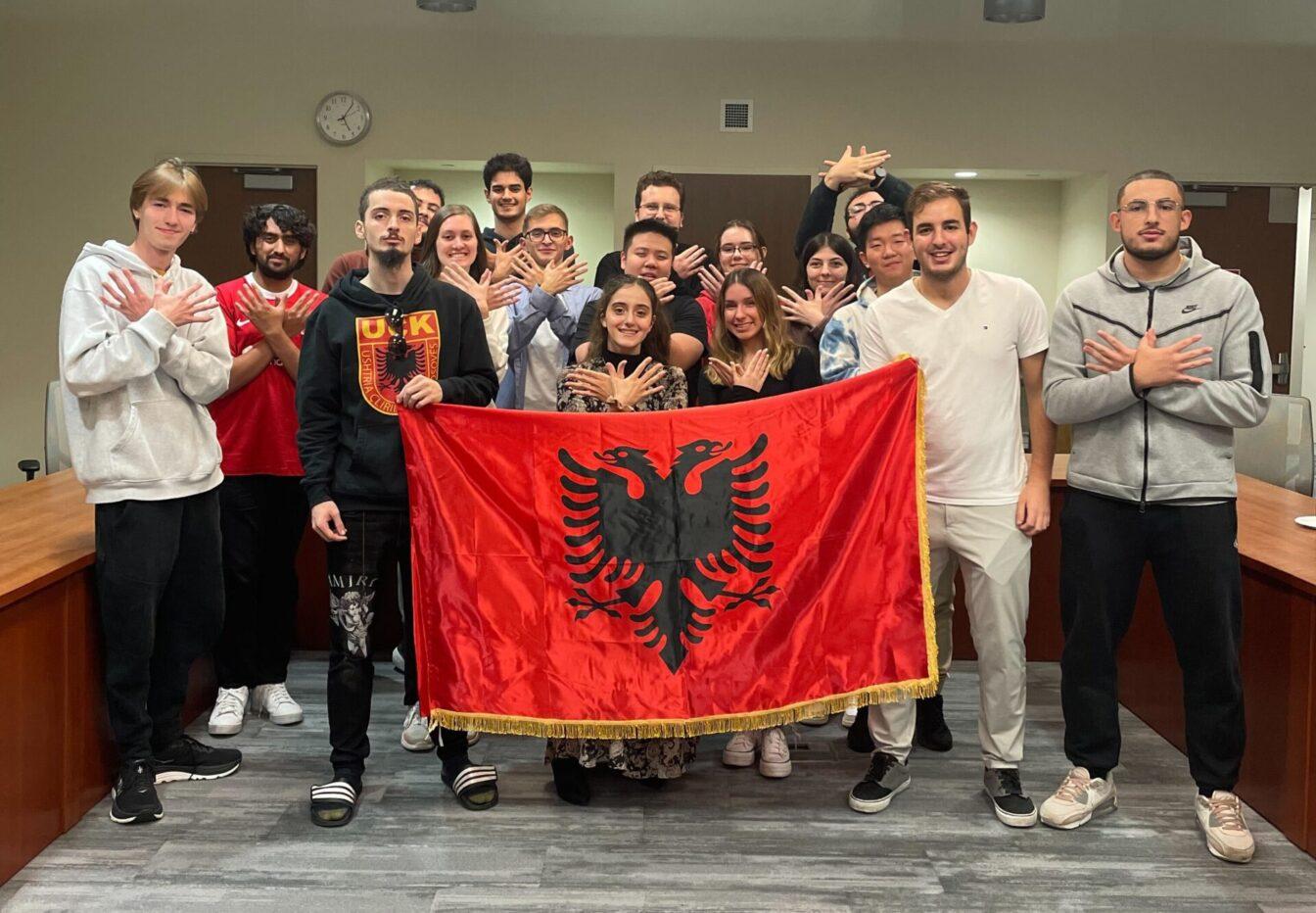This semester, the University of Wisconsin’s Albanian American Student Organization has resumed operations after going on hiatus during the pandemic. The AASO’s president Jehona Zeneli said her goal for the organization is to create an inclusive community dedicated to exploring and preserving Albanian culture.
The AASO provides an opportunity for Albanian and non-Albanian students to learn about the country and its people, Zeneli said.
Students for Sustainable Agriculture rebrand as ‘The People’s Farm’
“We wanted the Albanian people in Wisconsin, which is roughly around 4,000, to find a place within the campus and have people they can reach out to — especially with international students from back home in Albania and Kosovo coming more and more here,” Zeneli said.
Zeneli’s parents were first-generation Albanian immigrants, and she said it is often difficult for first-generation immigrants to assimilate into the American way of life. Many older Albanians emphasize the importance of family and the larger community, while Americans can be more individualistic, Zeneli said.
Zeneli said one of her focuses for the AASO is to recognize the importance of both cultures, and build a community that merges a community focus with an individual focus.
Prospective member of the AASO Martin Krongo said his parents were first-generation Albanian immigrants as well. His parents did not attend college, so his process of applying and going to college was a new experience for his entire family.
Krongo said he is happy AASO is back on campus, because it offers him a chance to connect with people with similar backgrounds.
“[Albania is] not really too well known just because of the fact that it’s such a small country,” Krongo said. “I mean, you could ask almost anyone. ‘Where’s Albania? Or what is Albania?’ A lot of people haven’t even heard of it. One of the main struggles is people just aren’t aware of it. So this club would be a great way to make people more aware and inform the general public.”
According to Harvard University’s Center for International Development, the U.S. has around 86,600 first-generation Albanian immigrants. The total number of ethnic Albanians in the U.S. is between 250,000 to 500,000. The U.S. is the third most common destination for Albanian immigrants after Italy and Greece.
Caribbean Student Association will connect existing community
The AASO existed in the past, but essentially disbanded during the COVID-19 pandemic, Zeneli said. She had to go into the inactive organizations database at UW and re-register it. The original constitution for the club was lost as well, so Zeneli had to rewrite it in order to get approval from the university.
“UW–Madison wanted it to be submitted after three years, but I couldn’t find it,” Zeneli said. “So I just rebuilt it, with the values that we as a team have discussed we wanted.”
The AASO hopes to participate in and host a variety of events. For instance, the organization is looking to participate in Albanian Independence Day, or Festa e Flamurit. The Albanian-American Community of Wisconsin will host Festa e Flamurit on Nov. 28, Zeneli said.
According to the European Network Remembrance and Solidarity, this holiday is a celebration of the country’s independence. Albanians thought they had successfully negotiated independence from the empire after years of revolt. But when the Balkan states waged war on the Ottomans, they sought to divide up Albanian land for themselves. Delegates from around the region met Nov. 28, 1912 to declare one independent Albanian state.
“We hope that with these events that are hosted by the Albanians in Madison, the students can also find people around the age so they can connect to, or even talk to the older generation,” Zeneli said.
Zineli said she wants the AASO to celebrate Ramadan with other predominantly-Muslim student organizations at UW, like the Middle Eastern and North African Student Association, the African Student Organization, the Arab Student Organization and the Somali Student Organization. As part of these efforts, the AASO could help organize Iftar dinners during the celebratory season.
Islam is the largest religion in Albania, but large portions of the population fall under different denominations. According to the U.S. Department of State, 57% of Albanians are Sunni Muslims, Roman Catholics account for 10% of the population and Sufi Muslims, Protestants, Mormons and Jews make up smaller fractions.
Despite the high Muslim population, Albania has not always been a highly religious country. According to the International Center for Law and Religion Studies, all religious practices were outlawed by Albania’s communist government in 1967. Albania became the only constitutionally atheist country in the world. Only in 1991, after the communist regime fell, did religious activities resume.
Zeneli said Albanian religious culture is very unique, influenced by this era of state-sanctioned atheism. Many Albanians have non-traditional and lenient interpretations of their religion. As an example, many Albanian Muslims in the U.S. don’t wear hijabs, Zeneli said.
Zeneli said one of the main goals of the AASO is to educate non-Albanian students about the history and culture of the nation.
“We wanted students who are not Albanian to have a chance for cultural exploration, and also to connect with a culture or country that they have not heard of,” Zeneli said.


















